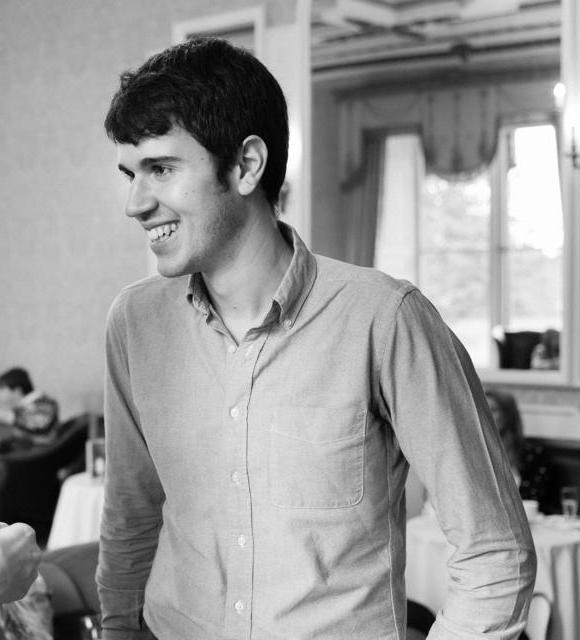Subscribe to our newsletter
Developer Week Profiles: Paul Mucur #DEVWEEK17

DeveloperWeek 2017 is the world’s largest developer expo and conference series with over 50 week-long events and dozens of city-wide partner events. The theme this year is, ‘The Industrial Revolution of Code’. Companies across all genres of business are re-positioning themselves as software-centric. Service and manufacturing industries are employing software specialists to build up their digital portfolios, and this pattern of business development is occurring all over the world with the integration of the cloud with consumer goods, transportation and hardware. One thing is for sure – code is revolutionizing the way we conduct business and ourselves.
To celebrate DeveloperWeek 2017, we’ve interviewed developers working at Digital Science portfolio companies. They are key members of our businesses and their story can help those who are considering following in their footsteps.
Up first, we interviewed John Lees-Miller, cofounder of Overleaf – you can read his interview here. Up next is Paul Mucur, CTO at our portfolio company Altmetric.
Do you remember the first time when you started experimenting with code and building digital tools?
After using Microsoft Publisher and FrontPage to make rather terrible-looking web sites resplendent with both Word Art and background music in my early teens, the Web Standards Project in the late 1990s and early 2000s pushed me to learn HTML and CSS in pursuit of semantic markup and accessibility. An eagerness to add a guestbook to sites led me to server-side programming with PHP and I’ve been hooked on software development for the web ever since.
A lot of people find the technical aspects of technology intimidating, how did you overcome the difficulties of learning a new language?
I was lucky to have a peer at school who was also learning to code at the same time. We were able to bounce ideas off one another and share tips and techniques as we discovered them. Over time, I have always enjoyed and benefited hugely from classmates, colleagues and communities to support and advance my own understanding. I have the privilege of working in London where there are many meetups for people interested in various aspects of software development from theory to programming languages, e.g. London Computation Club and London Ruby User Group.
Does the language of code continue to evolve?
While many programming languages share the same fundamental concepts despite syntactic differences, there are constant advancements in language and software design. For example, the majority of my experience is with the Ruby programming language but I’ve recently been learning a relatively new language called Rust in an attempt to learn more about a concept known as static typing. The differences in the design of these languages forces me to approach problems differently and consider them from an entirely new perspective in an attempt to produce faster, more reliable and more easily-maintained software.
As a professional developer, you most likely spend many hours in front of a computer, do you have an other endeavours or hobbies that help balance your work week?
While I’m not always successful, I try to practice Slack’s motto of “work hard and go home” and leave work in the office. From one stereotype to another, I’m also partial to homebaking and can frequently be found relentlessly posting photos of homemade sourdough bread to Instagram.
What advice would you give young people looking to break into the competitive world of software development?
There are many sites offering free courses such as Code School’s Try Ruby as well as organisations such as codebar which run free programming workshops for beginners and people looking to get into software development. Look to see if there are any local meetups and user groups, they often have both presentations and a chance to meet others interested in the same topics. If you can spare the time, I find working on a pet project an excellent way to teach yourself a technology, and all the better if you know someone who can assist and provide feedback. Learning is much, much easier in a group and, thankfully, communities around software are plentiful on the web.
